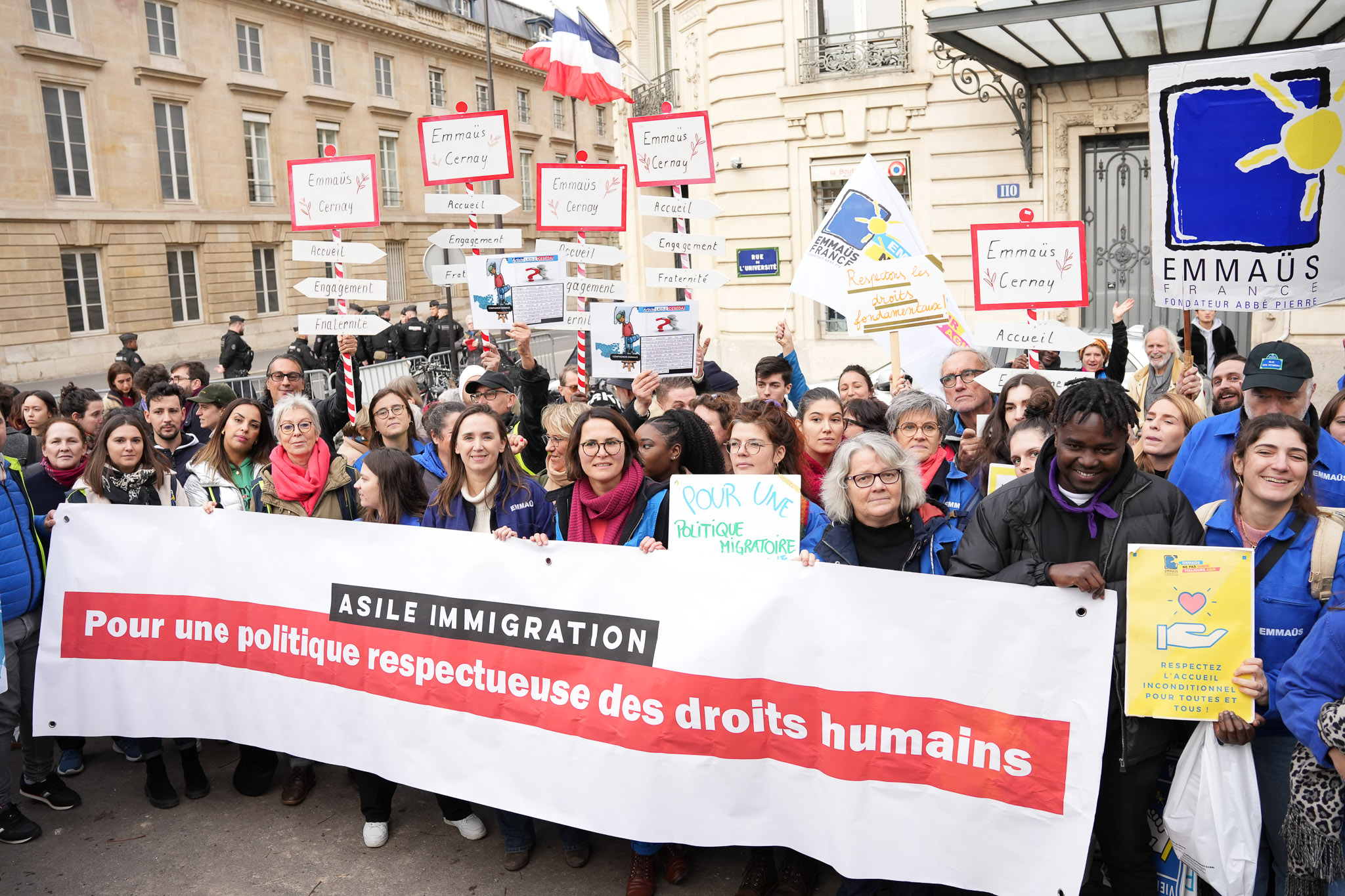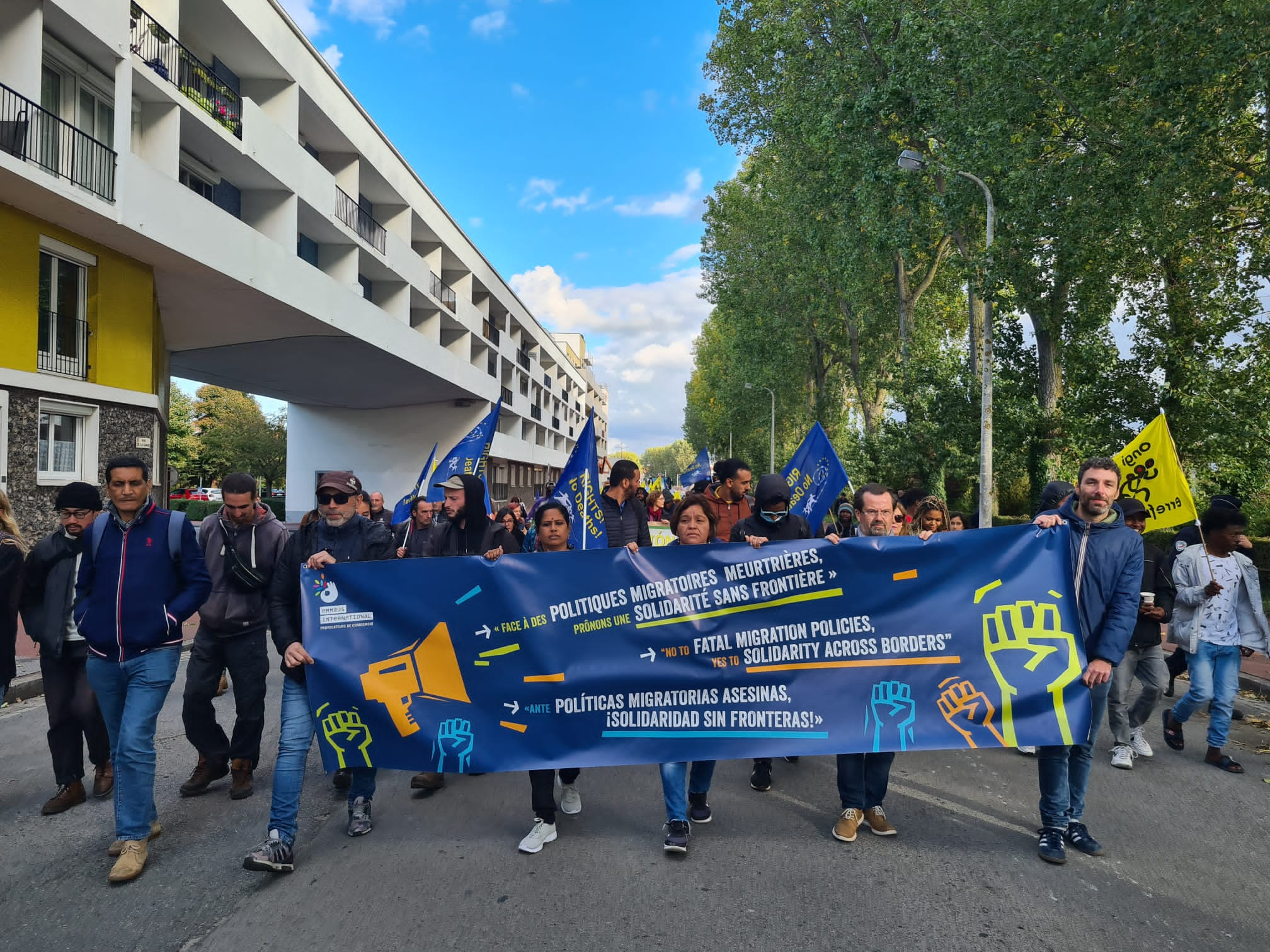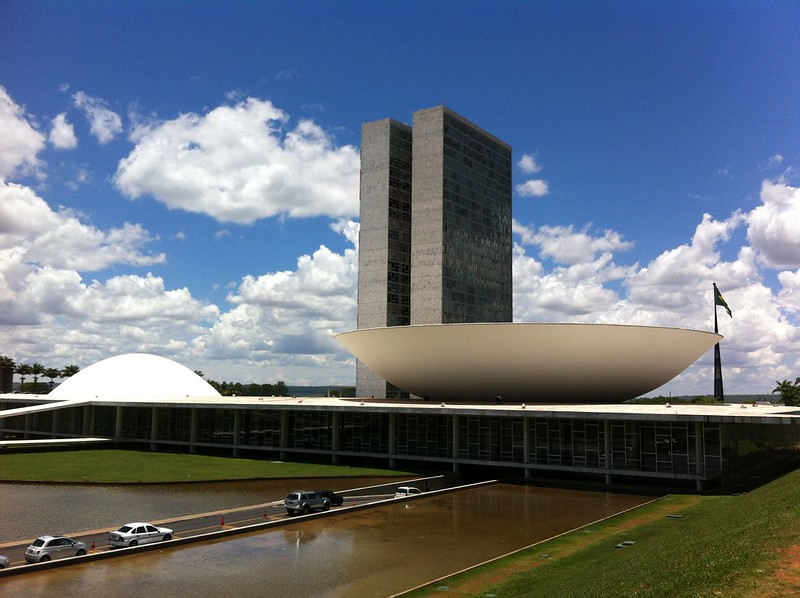Feedback on the second Migration Alliance meeting in Lisbon

More than 150 people from Africa, the Americas and Europe, including 18 representatives of the Emmaus movement from 14 countries, met in Lisbon on 26 and 27 January to take part in the 2nd Migration Alliance meeting
The challenge set by this Alliance, which was set up in 2019, is for local authorities and civil society to co-construct reception policies that respect human rights and take into account migrants’ experiences. It aims to bring together local authorities (municipalities, local administrative bodies, etc.) and civil society organisations such as OUC (Organisation for Universal Citizenship), which was co-founded by Emmaus International and A.N.V.I.T.A. (French National Association of Welcoming Cities and Territories).
Several plenary sessions and workshops were held to share good practices in cities ranging from Montreal (Canada) to Recife (Brazil), Gao (Mali) and Fontenay-sous-Bois (France), but also to reflect on the objectives and actions that the Alliance should carry out in the future.
Several women, migrants and activists, were presented with a universal citizenship passport: Maria Dantas, a Brazilian migrant in Spain and now a member of the Spanish parliament; Lilai Rebaï, head of the Tunisian office of the Euro-Mediterranean Human Rights Network; Cyntia Da Paula, President of Casa Do Brasil in Lisbon; and Carol Dartora, the first Black female federal deputy in Parana, Brazil. A final passport was also given to Mimmo Lucano, whose appeal trial took place the same week. This former mayor of the small village of Riace in Italy was sentenced to 13 years in prison, because of the refugee welcome system set up in his municipality.
At the end of the meeting, attendees were invited to join the working groups to get involved in putting the identified actions into practice. Thematic webinars will soon be organised on welcoming migrants in rural communities, the problems and prospects of countries of departure, and on lobbying decision-makers.
As the Emmaus movement defends freedom of movement and settlement, and calls for a dignified welcome of the most vulnerable people in its Global Report, we had an important role to play in this event, making our voice heard and highlighting the initiatives that the groups run locally, which give substance to these two principles.
Many territories around the world are still reluctant to welcome migrants, or offer them decent living conditions. The Emmaus groups are best placed to drive this momentum towards building alliances! If you are interested in getting involved in one of the abovementioned webinars, please contact a.gournay@emmaus-international.org
Download the documents from the 2nd meeting here:


